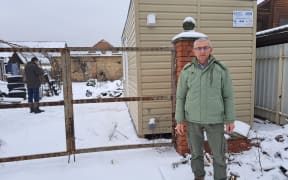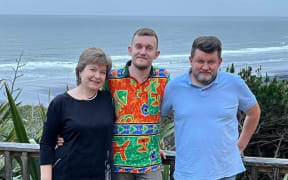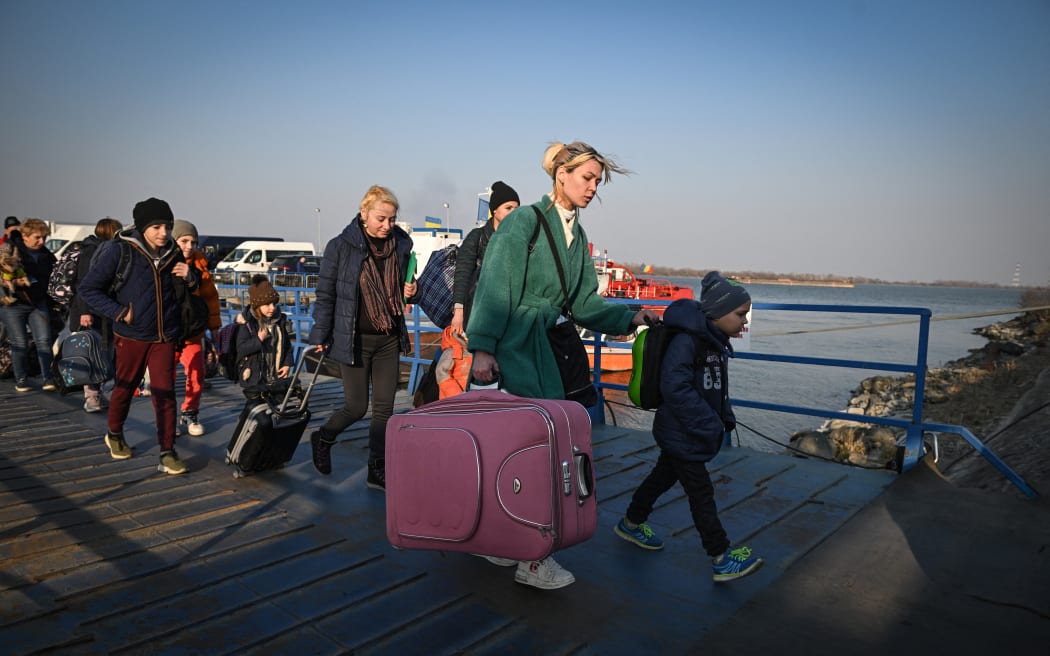
World Vision says it is trying to ensure refugee children from Ukraine arriving in Romania (pictured) get some sense of normalcy. Photo: AFP / Daniel Mihailescu
It is a year since Russia invaded Ukraine, and the largest movement of refugees in Europe since World War II began.
New Zealand offered to take 4000 people, but has so far taken 569. Ukrainians and their advocates hope the government can take steps to increase that help.
Valeriya Horyayeva is one of the lucky ones. Her mother lives in Nelson and so she, her four-year-old daughter Tereza, and her grandmother and aunt were able to take up the two-year special Ukrainian visa.
Her husband remained in Ukraine, while they escaped through a green corridor to Poland before moving to New Zealand in April.
"It was the most difficult decision in my life. Just to leave everything - your life, everything what you've built before. You just need to understand it doesn't matter anymore. To me, what really matters is life."
She wanted more help for new arrivals, financial help, including air tickets, and information to integrate here.
The trauma remained for Horyayeva; when the volunteer fire brigade alarm goes off, she is scared and feels the need to hide. But her daughter turned five in October and is thriving at school.
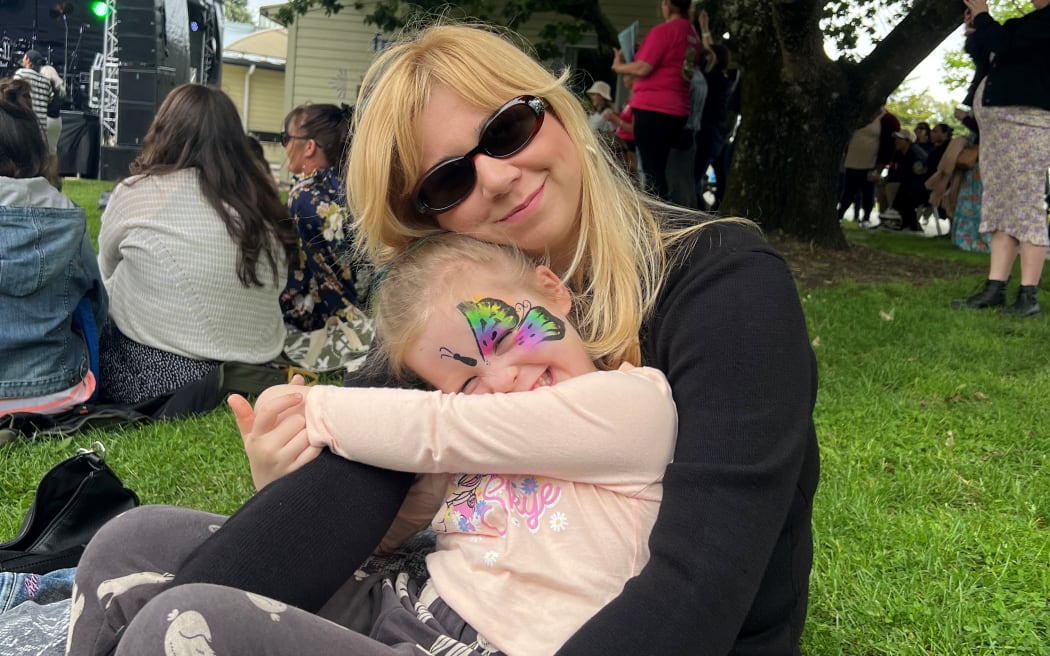
Valeriya and her daughter Tereza. Photo: Supplied
Only 14 percent of the forecast 4000 people have arrived on the special visa for families of Ukranians already resident in New Zealand, although another 600 have been approved.
World Vision senior policy and advocacy adviser Dr Lauren Donnan said one of the reasons for the low uptake was because the criteria were drawn too tightly.
The government seemed receptive last year to allowing extended family to be accepted, and widening who could sponsor them, Donnan said.
Although a Cabinet paper had now been drawn up, it had taken a long time. So too, news on whether the two-year visa period will be extended.
"The government has indicated that they'll look into this, but we can't leave that decision to the final hour," Donnan said.
"This uncertainty is a huge cause of stress for Ukrainians in New Zealand, who've already uprooted their lives and may have to do so again. We must have that certainty so Ukrainians know they won't be sent back to a war-torn country."
Immigration Minister Michael Wood said the government was aiming to confirm changes in the coming weeks and had already extended access to English language lessons.
"There are two issues that have been raised to me that the government is currently considering, first is a possible extension to the current special Ukraine policy, from the current date of the 15th of March, which is what it currently runs through to, and the second are a range of requests relating to possible expansions of the policy to make it a bit easier for people in Ukraine to be able to shelter in New Zealand.
"The government, of course, has a broader policy to provide support for Ukraine. We stand resolutely with Ukraine and the people of Ukraine in the face of a barbaric invasion that we utterly condemn."
Aucklander Andrew Robinson, who is in the Romanian capital Bucahrest for World Vision, said part of that government and public aid had been used to fund education and protection for Ukranians in Romania.
"Really just making sure children have a safe place where they can be children and they can heal from whatever trauma or distress they've experienced on their flight out of Ukraine and can have a normal [childhood] here."
The charity has helped more than 66,000 Ukrainian children and their families, who have settled there or were passing through. More than 106,000 Ukrainians remain in Romania.
His colleague Catherine Green is based in the Ukrainian city of Dnipro, about 100km from the frontline. The need for emergency basic supplies remains.
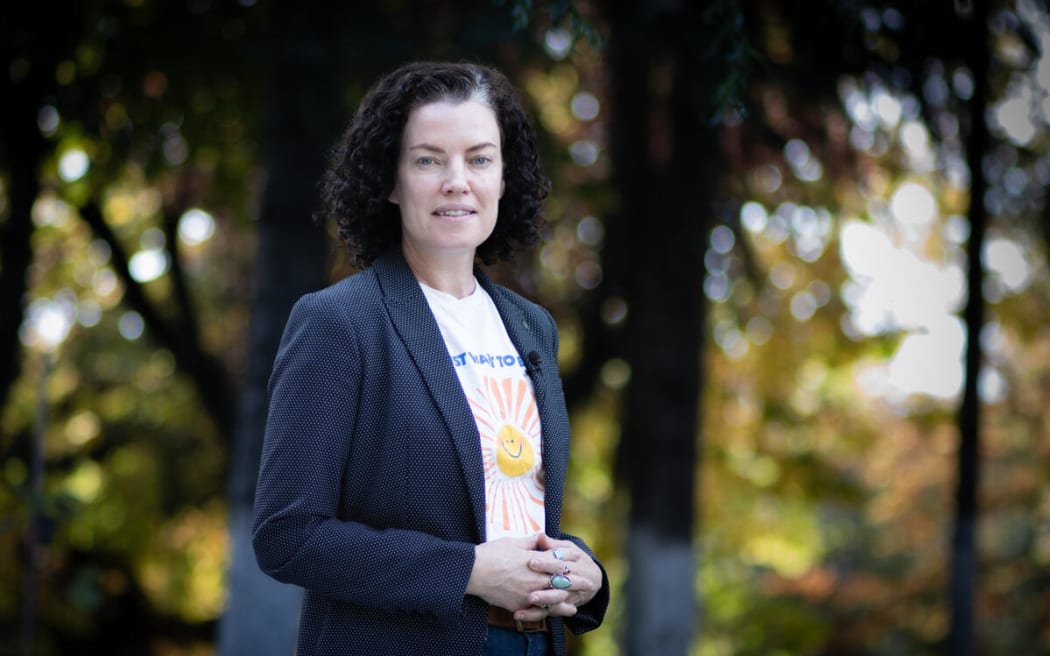
Photo: Supplied to RNZ
"The weather is pretty brutal. Today, it was snowing heavily. There were a number of air alarms during the day today, so that means that even if people do have a safe place to stay, they're having to go down to air raid shelters and stay down there for hours at a time."
Charities are doing what they can to bring normality to children who have not been in a classroom for three years or are separated from family.
For families in Ukraine, refugees overseas, separated from loved ones and with no end to the war in sight, not dwelling on the future is hard.
For Green, allowing kids to be kids again amid such uncertainty and terror will be crucial to them seeing that better days can lie ahead.

